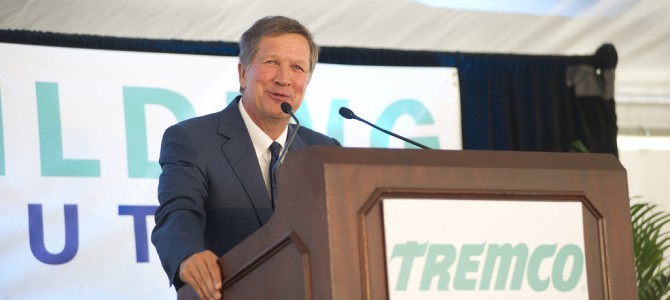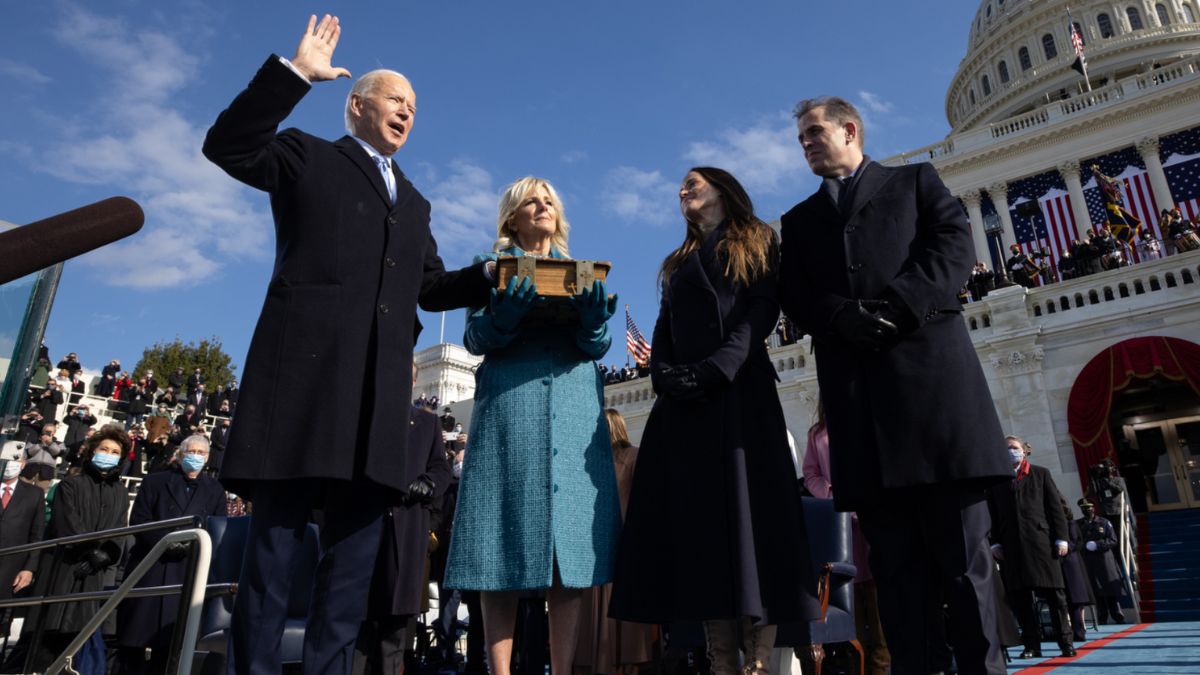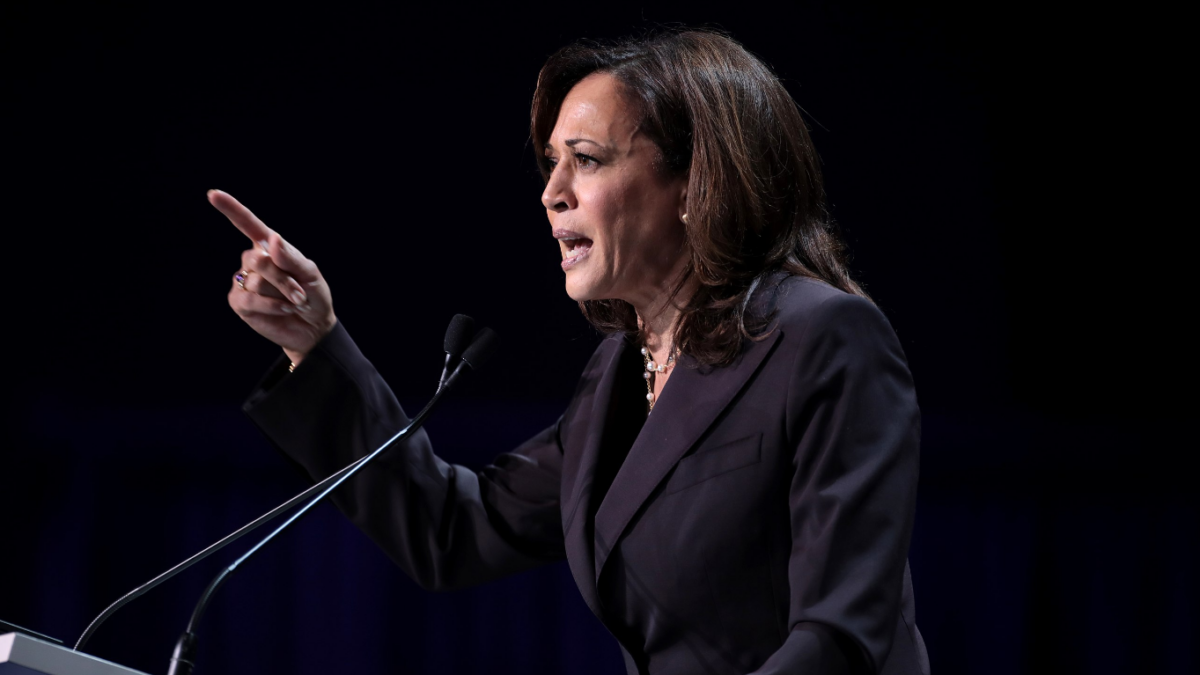
Ohio Governor John Kasich has found popularity with the legacy press the only way a Republican can, by expanding government and questioning the morals of anyone who does not.
In a January 2014 piece titled, “The Republican Presidential Contender Everyone’s Overlooking,” National Journal asserted that Kasich’s record “compares favorably with any of the top-tier candidates” for the 2016 GOP nomination.
“Kasich’s governing message in Ohio sounds awfully similar to the ‘compassionate conservative’ brand that Bush himself employed so successfully in 2000,” Josh Kraushaar wrote. Kraushaar also noted that Kasich “could be well-positioned to win a second term by racking up unusually high support from traditionally Democratic constituencies.”
This is the case for the same reason that John Kasich is suddenly the favorite Republican of many media elites.
“First, he did an end run around his state’s Legislature — controlled by his own party — to proceed with the federally funded expansion of Medicaid that is an important piece of Obamacare,” Paul Krugman explained in an October 2013 New York Times column.
Krugman’s editorial and a host of others like it were prompted by a Kasich quote printed days earlier in a Times story with the headline, “Ohio Governor Defies G.O.P. With Defense of Social Safety Net.”
John Kasich “occasionally sounds more like an heir to Lyndon B. Johnson than to Ronald Reagan,” reporter Trip Gabriel opined.
“I’m concerned about the fact there seems to be a war on the poor,” Kasich told The Gray Lady. “That if you’re poor, somehow you’re shiftless and lazy.”
Far from a one-off, Kasich’s remark was consistent with months of prickly reactions from the governor to critics of his decision to use Obamacare money for a radical redefinition of Ohio’s Medicaid program. For the press, the boilerplate “war on the poor” line was a story by virtue of who said it.
Gaining Popularity by Growing Government
Running as a fiscal hawk against Democrat Ted Strickland, under whom Ohio lost almost 375,000 jobs, Kasich was narrowly elected in the 2010 Tea Party wave.
Kasich was known for his work balancing the federal budget as House Budget Committee chairman in the 90s, and during the campaign he told small-government activists, “I was in the Tea Party before there was a Tea Party.”
Secretive “job creation” agency JobsOhio notwithstanding, Kasich’s governorship was off to a good start – including a phase-out of Ohio’s estate tax – until a state senator submitted a 300-page public employee union reform bill in early 2011.
With his approval rating in the 30s after Big Labor’s subsequent $40 million smear campaign against empowering taxpayers, Kasich decided that further empowering government was the way to win back swing voters’ support. Ohio’s press, led by Kasich donor and Columbus Dispatch publisher John Wolfe, agreed.
“In pursuing an expansion of Medicaid under the federal health-care overhaul, Gov. John Kasich wisely is putting pragmatism before party and ideology,” the Dispatch editorial board wrote the week after Kasich’s plan to enact the Obamacare expansion was unveiled.
“Kasich offers some very smart, humane ideas that will both improve the lot of workaday Ohioans and make it harder for Democratic critics to caricature him,” wrote the Cleveland Plain Dealer’s editors.
“One of the hallmarks of a great society is caring for the less fortunate,” the Cincinnati Enquirer editors wrote. “Expanding Medicaid can improve the lives of nearly a million people in Ohio and Kentucky alone and do it in a way that doesn’t damage state budgets.”
Kasich, who had warned on the 2010 campaign trail that Medicaid expansion would “stick states with large and unsustainable costs,” proceeded to push the expansion as the only way to help heroin addicts and the mentally ill.
Referencing his Christian faith and the teachings of “the Good Book,” Kasich made frequent public attempts to shame the Ohio General Assembly into expanding Medicaid.
“For those that live in the shadows of life, those who are the least among us, I will not accept the fact that the most vulnerable in our state should be ignored,” Kasich said during a lengthy portion of his 2013 State of the State address devoted to the Obamacare expansion.
Dispatch Senior Editor Joe Hallett lamented that “the justifiable expansion of Medicaid in Kasich’s budget is in jeopardy, because GOP lawmakers fear it will invite primary-election challenges from tea partiers who seem bent on society’s regression.”
With legislators still refusing to expand Medicaid months later, the governor warned, “when you die and get to the meeting with St. Peter, he’s probably not gonna ask you much about what you did about keeping government small, but he’s going to ask you what you did for the poor.”
Kasich’s suggestion that opposing him would have eternal consequences didn’t concern the press, which again leapt to attack Kasich’s critics.
“Even Kasich’s faith irks the off-the-chart right,” Plain Dealer editor and Ohio University journalism professor Thomas Suddes sneered.
“An unapologetic conservative is fighting the tea party and his own Republican legislature because he thinks the less privileged people of Ohio deserve health coverage,” The Washington Post’s E.J. Dionne swooned.
MSNBC’s Chris Hayes expressed enthusiasm that Kasich was “actually standing up against the right-wing elements in Ohio because he believes it’s wrong and inexcusable to make more than 270,000 poor Ohioans go without health coverage for no reason other than spite.”
While the press celebrated Gov. Kasich’s generosity, Kasich lied about how his Medicaid expansion would be paid for.
Warning that “Ohio’s” share of promised Obamacare money would go to other states if Ohio rejected the expansion, Kasich said Medicaid expansion would simply “bring back Ohio’s tax dollars” – and insisted the expansion had nothing to do with Obamacare.
Instead of challenging the governor’s assurances that his Medicaid expansion would cost taxpayers nothing, reporters repeated Kasich’s lies time and again and ignored anyone who tried to correct them.
“Opposition to Medicaid expansion is purely ideological,” The Columbus Dispatch editorial board declared last April.
“Republican lawmakers can offer all the excuses they want for their feckless obstructionism in resisting Medicaid expansion,” the Toledo Blade editors asserted the following month. “But they can’t argue persuasively that they’re acting in the best interests of the state and its taxpayers.”
The Buckeye Institute, Opportunity Ohio, Cato Institute, Foundation for Government Accountability, Heritage Foundation, and others would beg to differ.
Kasich’s Obamacare expansion is projected to cost state taxpayers $4 billion and federal taxpayers $53 billion through 2022; as of 2011, over a quarter of Ohio doctors were already rejecting new Medicaid patients; Medicaid coverage yields poor care; expansions in other states have bumped citizens from private coverage into Medicaid.
These are all facts that were explained to the legislature, which Kasich ultimately circumvented for the Obamacare expansion, and to the press, which cheered Kasich on.
Still a Conservative?
With the press lauding his devotion to bigger government, how is John Kasich still widely regarded as a conservative?
First and foremost, the Kasich Administration controls the Ohio Republican Party. Outsiders who rely on the state GOP for news from Ohio are getting their information from an organization whose sole purpose is the advancement of John Kasich’s political career.
Second, it helps that Kasich was a Fox News host for several years after leaving Congress in 2001. The governor appears on Fox often, and the rare challenging questions he faces always seem to be sandwiched between praise for his strong conservative record.
Krugman, Dionne, MSNBC hosts, and other national media figures recognize the importance of Kasich’s not-so-limited approach to limited government, but one of Ohio’s top political reporters needed a nudge to see the story angle.
In a recent video teasing a 5-part “deep dive” into Kasich’s career, Plain Dealer reporter Henry Gomez proudly acknowledged that the governor encouraged him to write the series.
“It’s actually funny – I got the idea from Governor Kasich,” Gomez said. “I was at this event in January that the Associated Press hosts in Columbus and I asked him a question: ‘How are you dealing with criticism from the conservatives in your party who say you’re too moderate?’”
“As anybody who’s listened to John Kasich give a speech knows, he likes to focus in on one person as if it’s only him and the other person in the room,” Gomez continued. “He kept personalizing his response to me, saying, ‘Well, Henry, as you know,’ and ‘Henry, as you know…’”
“And then a few weeks later when I met with him at the Plain Dealer for an endorsement interview, he was surprised that nobody had wrote more about his answer to the question, which is, he feels he has a right to shape what a conservative philosophy is, and really that he’s trying to sort of rewrite the book on modern conservatism.”
Kasich’s comments were dissected the day after he made them in a story shared by hundreds of readers at Media Trackers and thousands more at RedState, but old-media forays into conservative philosophy rarely allot space for observations from conservatives.
“So, I did sort of feel like it was a journey that I took along with Kasich,” Gomez concluded. “He sort of planted that seed in my head, ‘Why is nobody writing more about what I’m trying to do here?’”
Why, indeed.









